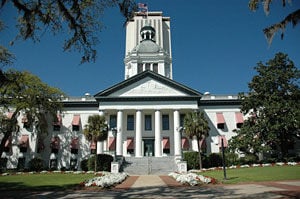Citadel Credit Union, located in suburban Exton, Pennsylvania, has reported significant growth in its business banking operations. As of September 30, 2023, the credit union’s commercial loan portfolio reached a total of $449 million, reflecting a robust increase of 17% from the same period last year. This growth aligns with a broader trend in the credit union sector, where commercial loan portfolios have expanded by 16.5% since the end of 2023, surpassing $183 billion as of June 30, according to data from the National Credit Administration.
Citadel’s net income for the same period amounted to $28.8 million, a year-over-year increase of 6%. These gains can be attributed to strategic investments in business lending, including the hiring of additional lenders and the enhancement of payment and treasury management services. Thomas Sebok, Citadel’s Chief Commercial Banking Officer, noted that since the beginning of 2025, the credit union has added nine business relationship managers and two business development officers to strengthen its offerings.
Expansion Plans and Community Focus
In a move to further its growth, Citadel plans to open at least three new branches in Philadelphia over the next three years. Sebok emphasized that credit unions are evolving beyond their traditional perception as small players. “Credit unions are no longer the small players people once assumed,” he stated, highlighting the credit union’s commitment to providing personalized service to small-business owners.
Citadel’s focus on business banking is not only about increasing profits but also about making a positive impact on the community. Michael Desimone, Chief Lending Officer, remarked that the credit union’s commercial lending strategy is a natural extension of its consumer business. “It’s a way for us to amplify our impact on our communities,” Desimone explained. The credit union primarily serves businesses with annual sales ranging from $1 million to $10 million, aiming to fill a gap left by larger banks that have shifted towards more impersonal service models.
Industry Challenges and Competitive Landscape
Despite Citadel’s success, the growth of credit unions in business lending has raised concerns among traditional banks. Many in the banking sector argue that credit unions benefit from an unfair competitive advantage due to their exemption from federal and state income taxes. This perception is particularly pronounced regarding business lending, which remains a contentious issue. In 2016, the Independent Community Bankers of America (ICBA) filed a lawsuit against the NCUA to challenge a regulation that facilitated business lending, although the suit was dismissed the following year.
Recent allegations from banking advocates have also focused on acquisitions made by credit unions, claiming such transactions have led to decreased Small Business Administration (SBA) lending in the affected areas. The American Bankers Association has opposed proposals to increase the dollar volume of business lending exempt from counting against credit unions’ lending caps, which are capped at 12.25% of total assets, with the first $50,000 of each loan exempt from this limit.
As Citadel navigates these challenges, it remains committed to its community-focused lending strategy. The credit union was certified as an SBA lender in May but has adopted a cautious approach to government-guaranteed loans. The recent 43-day government shutdown briefly hindered its progress, but Desimone stated that the credit union is determined to continue expanding its presence in the Philadelphia market.
“Our strategy is to build and grow the business while supporting our expansion plans,” Desimone added. Citadel’s approach to lending emphasizes the importance of personalized service, addressing the needs of local businesses and fostering long-term relationships.
With a clear vision and strategic focus, Citadel Credit Union exemplifies how community institutions can thrive in a competitive financial landscape, providing valuable services to small businesses and contributing to local economies.






































































